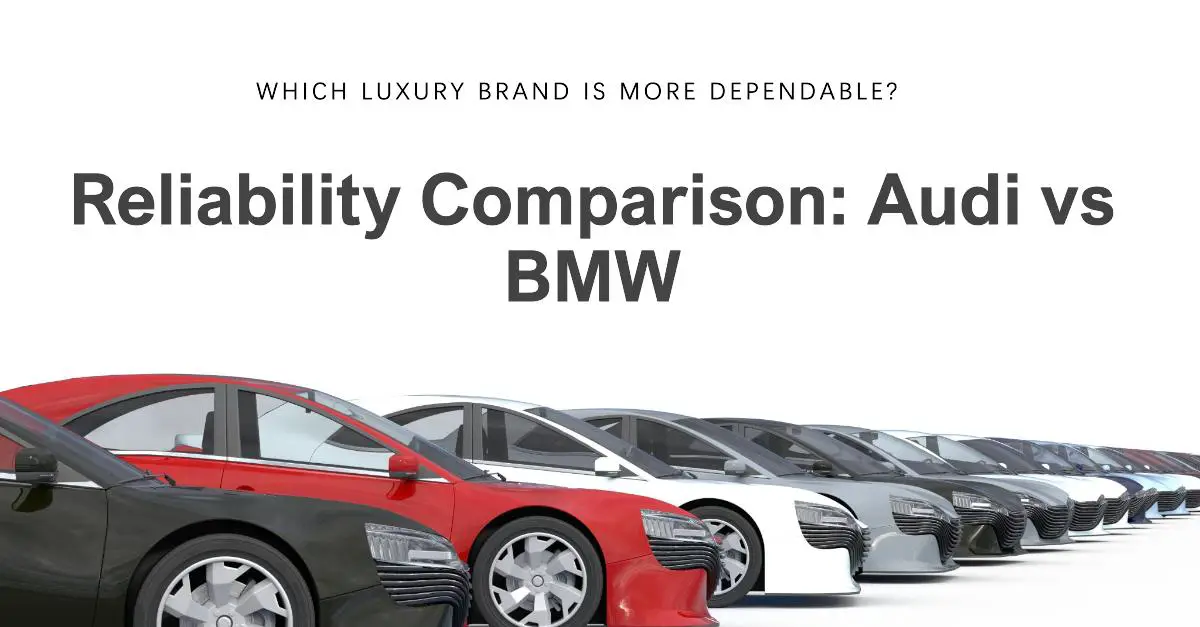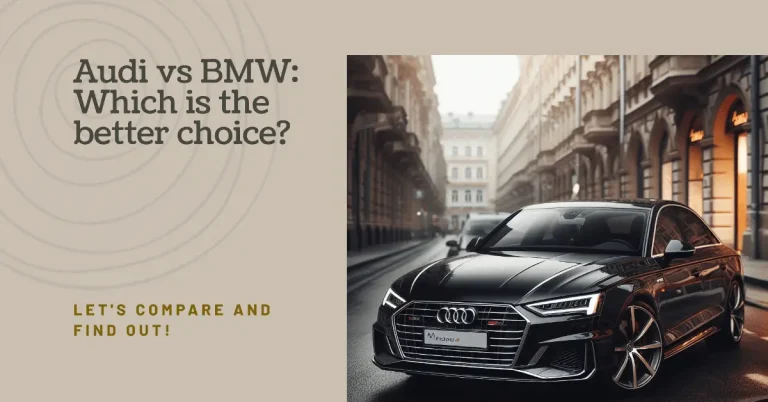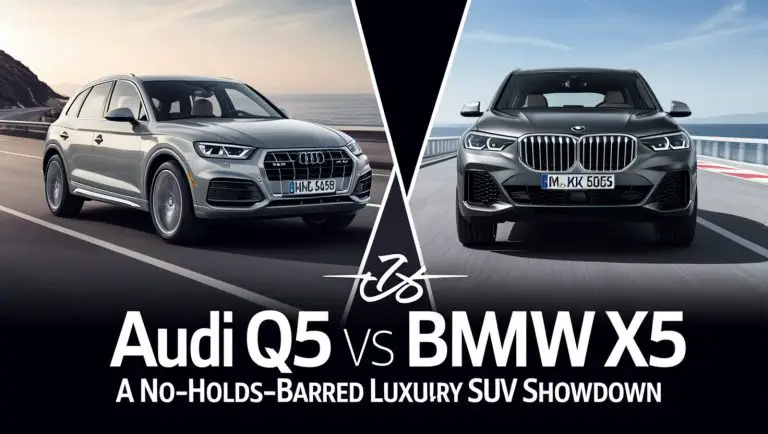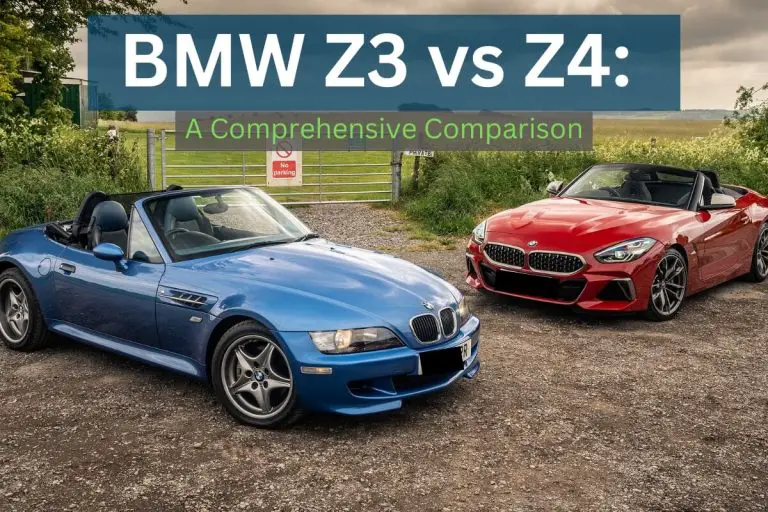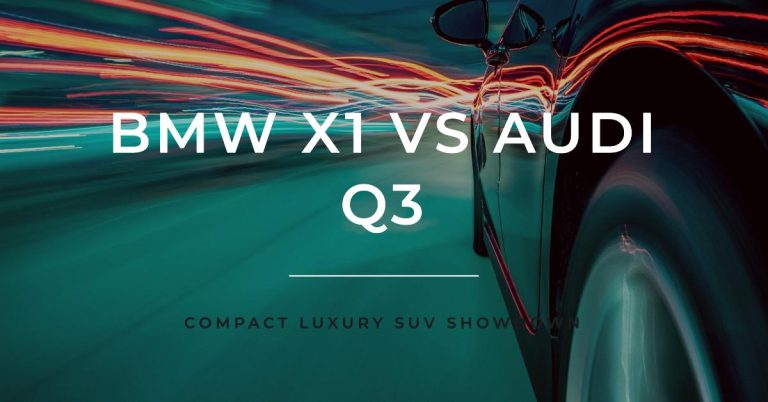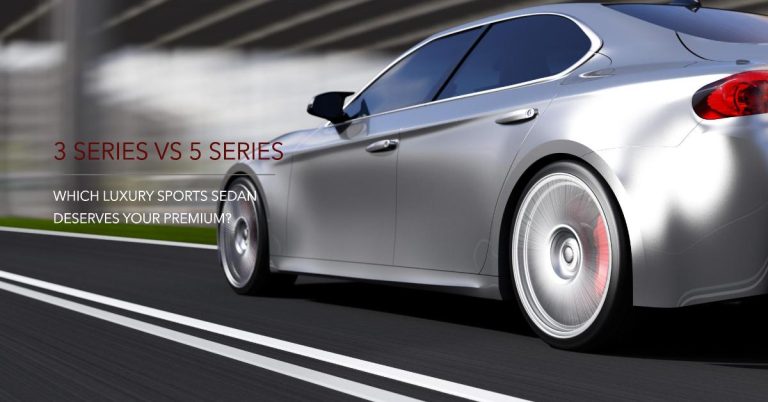Audi vs BMW Reliability: Which Luxury Brand is More Dependable?
When shopping for a new luxury vehicle, two German automakers likely top your list – Audi and BMW. These brands are renowned worldwide for their premium vehicles packed with cutting-edge technology, powerful performance, and upscale amenities. However, an oft-overlooked but crucial factor separating Audi and BMW is their reliability record. After all, what good is an opulent ride if it constantly needs repairs?
So between Audi and BMW, which brand builds the most dependable, trouble-free luxury cars and SUVs?
In most assessments, BMW emerges as the more reliable luxury car brand between the two. Though both automakers now rate above average for dependability, BMW tends to outpace Audi in long-term reliability ratings and have fewer reported issues from owners.
This detailed guide compares the reliability of Audi and BMW across multiple authoritative sources and key criteria like warranty coverage, safety ratings, repair costs, owner satisfaction surveys and more. We’ll dive into how each brand’s vehicles hold up in different categories, evaluate potential long-term issues, and help you understand which is the wiser investment for your luxury car needs.
Examining Reliability Ratings from Major Sources
When it comes to evaluating vehicle reliability, two leading sources are J.D. Power and Consumer Reports. Their annual studies and ratings provide valuable data based on surveys of verified owners about the problems and issues they’ve experienced with their vehicles.
J.D. Power Vehicle Dependability Study
J.D. Power’s Vehicle Dependability Study (VDS) examines problems experienced by original owners of 3-year-old vehicles, rating brands and individual models by the number of issues reported per 100 vehicles (PP100). In the latest 2023 study:
– BMW ranked 6th with a score of 180 PP100, rating well above the industry average of 192.
- Its best-performing models were the X2, Z4, M8, X7 and X4. – Audi ranked 13th with 216 PP100, slightly better than average but well behind BMW.
- Its highest-scoring models were the A7, A8L and A6 Allroad.
So according to J.D. Power’s long-term reliability assessments, BMW has a clear edge over Audi in terms of problem incidence in the first few years of ownership.
Consumer Reports Reliability Data
Similarly, Consumer Reports’s exclusive survey data shows BMW outperforming Audi when it comes to reliability. In their latest Auto Reliability Report:
– BMW earned an overall reliability score of 45/100, placing 12th of 24 brands evaluated.
- Its most reliable models included the X3, X4, and X5 SUVs. – Audi scored just 33/100 for overall reliability, ranking lower down at 20th place.
- Its most dependable offerings were the A3 and Q3 according to CR’s data.
While neither brand ranks at the top for predicted reliability, BMW models tend to experience fewer issues than their Audi counterparts based on Consumer Reports’s member surveys over the past few years.
Before buying any luxury car, it’s wise to check reliability scores specific to the model and year you’re considering, but BMW appears to have an early advantage over its German rival Audi.
Digging into Warranty Coverage Differences
Warranties play a major role in protecting owners from costly repairs, providing valuable peace of mind particularly for luxury vehicles that can be expensive to fix. So how do Audi and BMW stack up in terms of warranty coverage?
Both brands provide very similar bumper-to-bumper new vehicle limited warranties:
– Audi covers new vehicles for 4 years/50,000 miles – BMW offers the same 4 year/50,000 mile new vehicle warranty
They also match up identically for other key warranties:
- 12 year/unlimited mile corrosion perforation warranty
- 4 year/unlimited mile roadside assistance coverage
So there’s no real differentiation between Audi and BMW when it comes to the duration and mileage limits of their standard warranty packages on new cars and SUVs.
However, BMW does provide one extra perk that Audi lacks – complementary scheduled maintenance for the first few years.
All new BMW vehicles come with 3 years or 36,000 miles of free factory-recommended maintenance like oil changes, inspections, etc. Audi does not include any free maintenance with their new car purchases.
For certified pre-owned (CPO) vehicles, Audi and BMW again mirror each other by extending coverage for up to 1 additional year with unlimited miles after the original 4-year/50,000-mile new vehicle warranty expires.
While both brands offer industry-standard warranty programs, the inclusion of free scheduled maintenance for several years gives BMW a slight edge from a peace-of-mind perspective for new luxury car buyers.
Reviewing Safety Ratings and Crash Test Results
Given the premium price tags of Audi and BMW vehicles, buyers understandably expect exceptional safety standards and occupant protection. But how do these German luxury brands actually stack up in independent safety assessments?
One widely respected authority is the Insurance Institute for Highway Safety (IIHS), which conducts rigorous crash testing on new vehicles each year. IIHS awards two main safety honors:
- TOP SAFETY PICK+ (the highest rating)
- TOP SAFETY PICK
In their latest ratings for the 2023 model year:
– 7 different Audi models earned the TOP SAFETY PICK+ award – Including the A6, A7, e-tron, Q5 and e-tron Sportback – Only 1 BMW vehicle received TOP SAFETY PICK+ (the X5 midsize SUV)
– Though several others did earn the lower TOP SAFETY PICK rating
So from strictly an IIHS safety rating standpoint, Audi vehicles tend to perform better and provide greater occupant protection in the event of a collision compared to most current BMW models.
The National Highway Traffic Safety Administration (NHTSA) also comprehensively crash tests new vehicles. In their latest published assessments:
- Most recent Audi models earned 5-star overall safety ratings (e.g. A3, Q3, A4, Q5, Q8)
- Top BMW models like the 3 Series, 4 Series, and X3 also achieved 5-star crash ratings
While neither brand has a major edge over the other for crash protection per NHTSA’s tests, Audi does seem to have a slight upper hand versus BMW in IIHS safety evaluations as of late.
Both luxury brands pack their vehicles with advanced active safety features like:
- Forward collision warning
- Automatic emergency braking
- Blind spot monitoring
- Rear cross-traffic alert
- Lane keeping assistance
However, Audi offers additional premium tech like a night vision system that uses thermal imaging to detect pedestrians and animals obscured from the headlights’ view. This isn’t available on any current BMW.
From a strict safety ratings and crash protection standpoint, Audi holds a minor advantage over BMW. But both automotive giants prioritize safety across their lineups.
Evaluating Cost of Ownership and Maintenance
Given the premium pricing of most Audi and BMW models, buyers should consider the long-term operating costs over the full ownership experience. Maintenance, repair bills, fuel efficiency and other running costs can really add up, especially for luxury cars.
Data from several respected sources provides some insight into the expected 5-year ownership costs for Audi vs BMW:
*According to Kelley Blue Book’s 5-Year Cost to Own data:
- The average 5-year ownership costs for a BMW are projected at $56,703
- For an Audi, it’s slightly higher at an estimated $57,693
Edmunds’ True Cost to Own calculations show a wider gap:
- Estimating $64,205 over 5 years for the average BMW model
- Compared to $69,301 for a typical Audi over the same period
So most analyses suggest slightly higher projected ownership costs over 5 years for an Audi versus a BMW in terms of maintenance, repairs, financing, insurance, fuel, fees and depreciation. The differences aren’t dramatic but could add up to $1,000-$5,000 more for an Audi.
Looking more granularly at just estimated maintenance and repair costs from RepairPal and others:
- The average annual repair cost for an Audi is around $1,000
- For a BMW, owners can expect to pay roughly $1,150 per year
Maintenance costs are also marginally higher for BMWs over the first 10 years compared to Audis ($17,800 vs $12,400 on average respectively).
Much of this gap comes from BMW including 3 years of free factory maintenance on all new vehicles. Meanwhile, Audi does not provide any complimentary maintenance, so owners must pay out-of-pocket for services like oil changes, inspections, etc. right from the start.
However, it’s important to note that maintenance costs can vary significantly between different Audi and BMW models based on their engine types, drivetrain components, and other factors. For example, repairing and maintaining a high-performance BMW M model will likely cost more than a standard 3 Series sedan.
While maintenance and repair costs may run slightly higher for BMWs, the brand does offer an advantage with several years of free scheduled services included with new vehicle purchases. This provides desirable peace of mind, at least initially. Over the long haul, there may not be a major difference in operating costs between an Audi or BMW.
Assessing Owner Satisfaction and Reliability Surveys
One of the best ways to gauge the real-world reliability of Audi and BMW vehicles is through surveys of actual owners reporting on the problems, issues and satisfaction levels they’ve experienced. Fortunately, there are several major studies that provide valuable data on this front.
J.D. Power’s Annual Vehicle Dependability Study polls owners of 3-year-old models about any problems they encountered in the prior 12 months across 8 core categories. In their most recent 2023 study:
- BMW ranked 6th out of 33 total brands with 180 problems reported per 100 vehicles
- Audi placed a more middling 13th with 216 problems per 100 vehicles
This aligns with J.D. Power’s ranking of the brands overall, with BMW scoring better than Audi for long-term dependability based on verified owner feedback after a few years of ownership.
Consumer Reports also conducts annual reliability studies based on data collected from their own subscribers. In their latest Auto Reliability Report for new models:
- BMW earned a reliability rating of 45/100, ranking 12th out of 24 brands assessed
- Audi scored lower at 33/100 for predicted reliability, placing 20th overall
While neither BMW nor Audi ranks among the elite for predicted reliability, most studies and owner surveys consistently show BMW outperforming its German rival across their respective lineups.
The most commonly cited trouble areas for Audi models tend to be electrical systems, fuel systems and heating/cooling issues. For BMWs, owners more frequently report problems with engines, fuel systems and electrical components.
Consumer Reports notes that while their reliability ratings contain model year details, it’s wise for any car buyer to reference other sources before making assumptions on a specific model’s dependability.
Based on aggregate data from owners themselves, as well as authoritative assessments like J.D. Power and Consumer Reports, the overall consensus appears to be that BMW produces more reliable, longer-lasting luxury vehicles versus Audi. However, the differences aren’t dramatic and owners of either brand need to research specific models thoroughly.
Diving Into Reliability by Vehicle Category
So far we’ve examined Audi vs BMW reliability at a high level based on brand-wide studies, but it’s also important to break things down by specific vehicle categories and model comparisons. After all, the reliability of a luxury sedan may differ from an SUV or high-performance sports car from each marque.
Luxury Sedans
When it comes to the heart of both lineups – luxury sport sedans – how does the dependability compare for Audi’s A4, A6 and A8 models versus BMW’s quintessential 3 Series, 5 Series and 7 Series?
Looking at the data from sources like Consumer Reports and J.D. Power, BMWs tend to have a clear advantage:
- The BMW 3 Series earns significantly better reliability scores than the Audi A4 in most assessments
- Similarly, the 5 Series and 7 Series outpace the A6 and A8 for predicted reliability ratings
That said, it’s worth checking out model-specific scores based on the year and trim level you’re considering, as actual results can vary. But in general, BMW’s core sedan offerings are regarded as more reliable picks than their Audi luxury sedan counterparts.
SUVs and Crossovers
Sport utility vehicles are a major part of both brands’ lineups and huge sellers in the luxury space. So how do they stack up in terms of reliability?
Per the latest studies and surveys from J.D. Power, Consumer Reports and others:
- BMW’s X3, X5 and X7 models all earn strong reliability scores that outpace Audi’s competing Q5, Q7 and Q8 SUVs
- The compact BMW X1 and full-size X7 tend to fare particularly well in most reliability assessments
However, Audi does have a couple bright spots when it comes to SUV reliability:
- The Audi Q3 subcompact crossover is praised for its dependability, outscoring BMW’s X1 in some reports
- The new fully-electric Audi e-tron also gets fairly high marks for predicted reliability as an EV
So while BMW has an edge for reliability across most SUV segments, especially in the larger and more popular categories, Audi isn’t too far behind. Luxury crossover buyers considering both brands should still carefully research specific model years before deciding.
Sports Cars and High-Performance Models
When it comes to high-revving performance vehicles built for sheer thrills, reliability unfortunately often takes a backseat. That said, how do Audi’s offerings like the TT, R8 and RS-badged models measure up to BMW’s legendary M cars and other driver’s cars?
The truth is that most of these high-performance variants don’t excel in reliability studies due to their complex engineering, track-tuned components, and the typical stresses owners place on them. J.D. Power and Consumer Reports tend to give below-average reliability scores to models like:
- BMW M3, M4 and M5
- Audi RS3, RS5, RS7 and R8
In this ultra-high performance realm, engineering tends to prioritize maximum power output and extreme capability over long-term dependability. As repairs can be very expensive for these potent machines, it’s advisable to follow maintenance schedules rigorously.
For buyers primarily interested in sports car dynamics and visceral thrills, reliability may be a secondary consideration to vehicle capability at this exotic level. Neither Audi nor BMW emerges as a clear winner here.
Electric Vehicles
With both brands rapidly expanding their electric vehicle lineups, a direct comparision for EV reliability is also becoming more relevant:
- Audi’s pioneering e-tron and e-tron Sportback EVs have been relatively well-regarded for dependability so far
- But BMW’s iX and i4 models are still too new to have accumulated enough real-world reliability data yet
Early indications suggest Audi may have a leg up when it comes to EV reliability at the moment based on its head start with models like the e-tron. However, this is still a developing area without much conclusive evidence either way yet.
As automakers continue their shift towards electrification, seeing how each brand’s latest fully-electric offerings stack up for problem rates and long-term durability will be increasingly important for green luxury car buyers.
Assessing Long-Term Dependability Beyond 100,000 Miles
For some luxury vehicle owners, keeping their prized Audi or BMW on the road reliably for not just a few years, but over the very long haul covering 6 figures of mileage or more, is the ultimate measure of dependability.
Most experts agree that with proper, diligent maintenance following the manufacturer’s recommended service schedules, both Audi and BMW models can achieve this lofty 100,000 mile milestone with few major issues. Many owners report their German luxury vehicles running well beyond 150,000 or even 200,000 miles when properly cared for.
That said, after analyzing large samples of high-mileage Audi and BMW vehicles, some trends do emerge between the two brands:
- Certain BMW engines like the N63 V8 found in models like the 5 and 7 Series have been prone to very expensive issues once surpassing 100k miles
- Similarly, timing chain problems with some Audi 2.0T engines after high mileage can lead to costly repairs if not addressed
Overall, the consensus seems to be that BMWs experience slightly fewer vehicle-crippling issues at extremely high mileage levels versus Audis. However, both brands require religious adherence to maintenance and service intervals to maximize long-term dependability.
Purchasing a certified pre-owned (CPO) vehicle from either Audi or BMW can provide valuable extended warranty coverage to help mitigate unexpected repair costs for high-mileage examples. CPO coverage caps at 6 years for both brands.
Like with most vehicles, keeping an Audi or BMW on the road for 150,000+ miles will inevitably require escalating maintenance costs and repairs over time. However, by prioritizing scheduled services and being proactive about addressing issues, many owners are able to stretch the lifespan of their German luxury cars admirably.
Ultimately, between Audi and BMW, the latter brand seems to have a slight advantage for achieving stellar long-term reliability and durability into the 6-figure mileage ranges. But both require committed ownership and care to maximize their longevity potential.
Final Thoughts on Audi vs BMW Reliability
After comprehensively evaluating Audi and BMW reliability through the lenses of respected industry authorities, owner survey data, safety ratings, repair costs and more, one key takeaway emerges: BMW holds a slight but distinct edge over Audi in terms of overall vehicle dependability.
Across multiple vehicle categories like sedans, SUVs and luxury cars overall, BMW models consistently deliver better reliability assessments and lower problem rates than their Audi counterparts. That said, there are certain bright spots for Audi, like the Q3 crossover, that can outshine BMW’s offerings.
Audi does garner superior safety ratings from IIHS compared to BMW, especially when it comes to the highest accolade of TOP SAFETY PICK+. So it’s a bit of a trade-off between predicted reliability versus crash protection at the highest levels.
For cost of ownership, maintenance expenses, and repair frequency/costs, the scales tip ever so slightly in BMW’s favor again. The free maintenance period for all new BMWs certainly provides extra peace of mind, at least initially.
Ultimately, neither the Audi nor BMW brands can claim dramatic decisive victories in dependability rankings. But based on the preponderance of evidence from J.D. Power, Consumer Reports, owner surveys and other data, BMW does emerge as the slightly more reliable and longer-lasting luxury vehicle choice between the two German automotive giants.
That said, the differences are relatively marginal, especially when examining specific model years or vehicle segments in isolation. With diligent maintenance and care, owners of either brand can absolutely maximize the reliability, durability and longevity of their prized luxury rides.
As with any car purchase, expert recommendations suggest:
- Carefully researching specific model years/trims you’re considering
- Reviewing the latest reliability studies and ratings from multiple sources
- Potentially purchasing an extended warranty, especially for higher-mileage examples
- And most importantly, adhering to all prescribed maintenance schedules like clockwork
By doing your due diligence as a prospective buyer, and properly caring for your Audi or BMW over the long haul as an owner, you can absolutely maximize the reliability and ownership experience regardless of which German luxury brand you ultimately choose.

